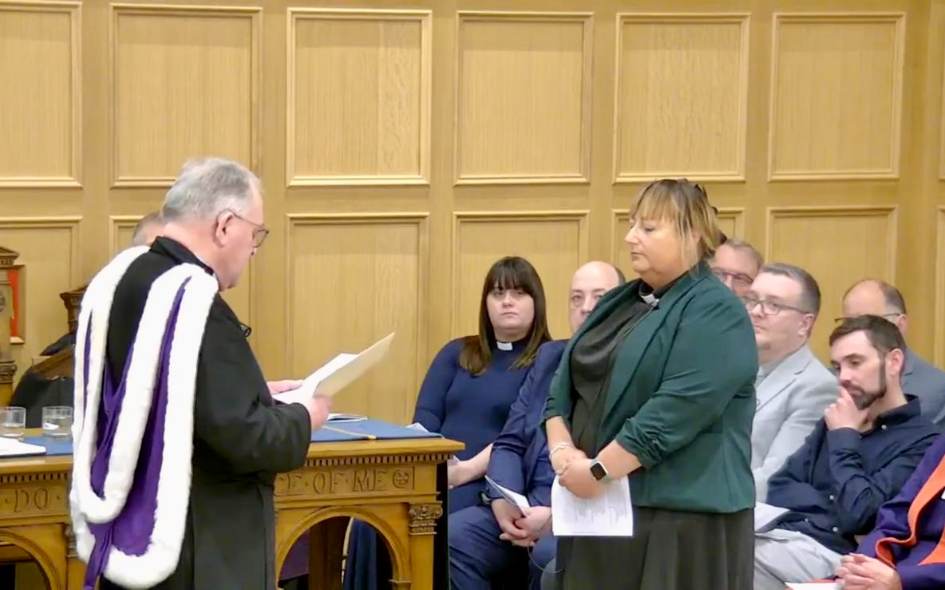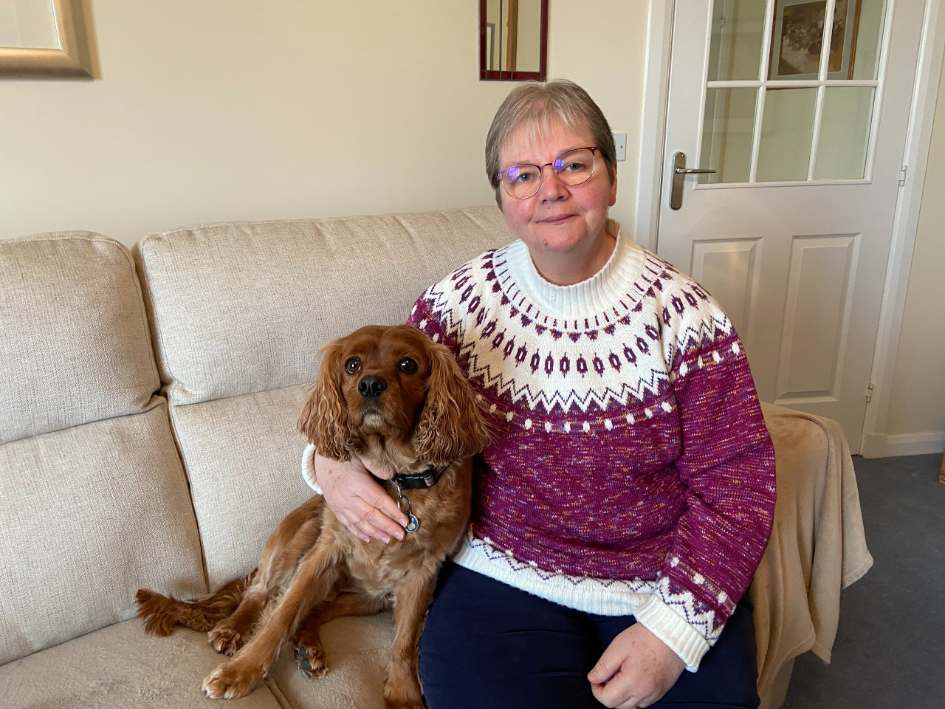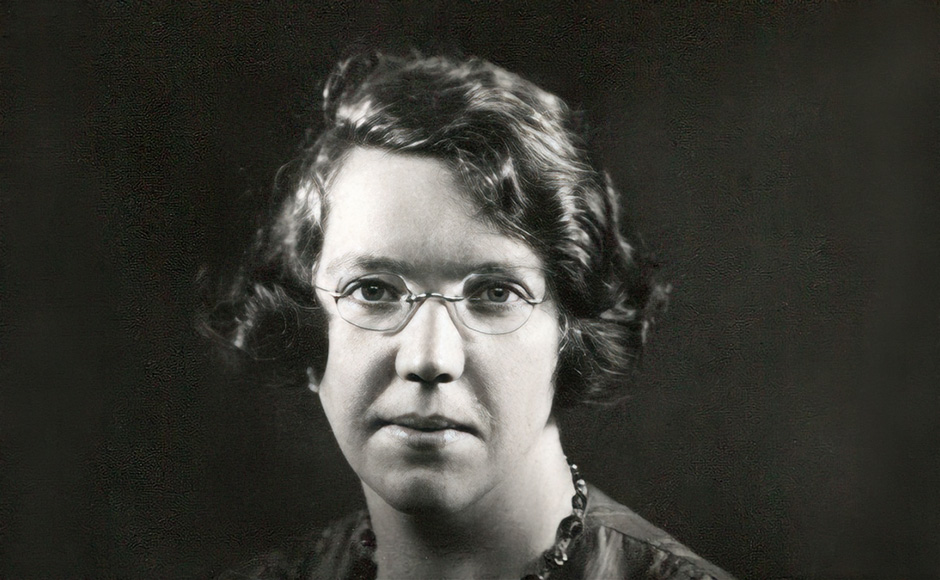IT Project Manager celebrates 50 years working at Church offices
Published on 1 July 2024 4 minutes read
Veronica Roddie had not long celebrated her 16th birthday when she joined the staff at the Church of Scotland offices in Edinburgh.
It was 1 July 1974 – the Rubik's Cube had just been invented and Harold Wilson was just three-days shy of celebrating four months as Prime Minister.
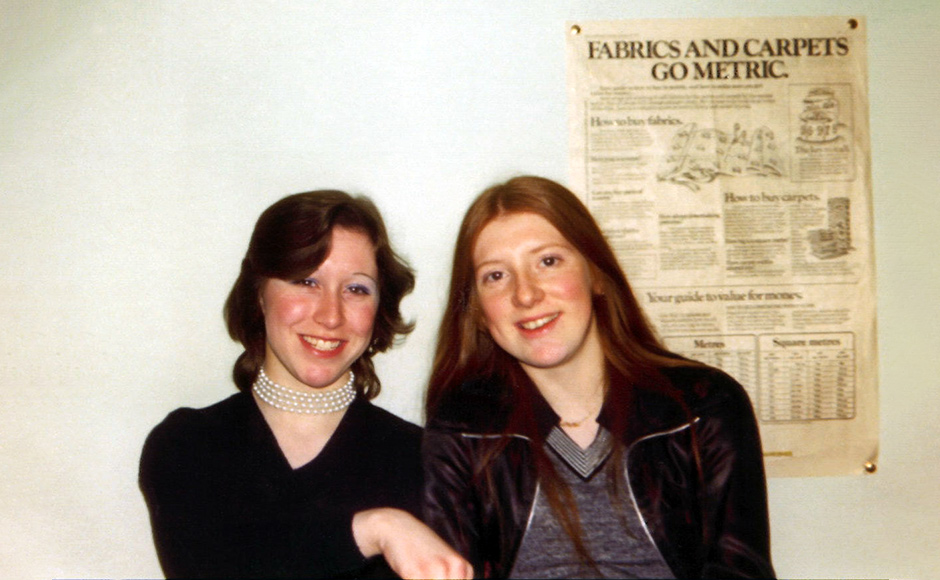
Ms Roddie had been looking through job advertisements in the local newspaper with her father and come across a job at the Kirk.
"It was with the General Treasury Department and he said, ‘there's money in that'."
Ms Roddie, whose salary started off at £42 a month, said that a lot has changed in the half-century since she joined the George Street office.
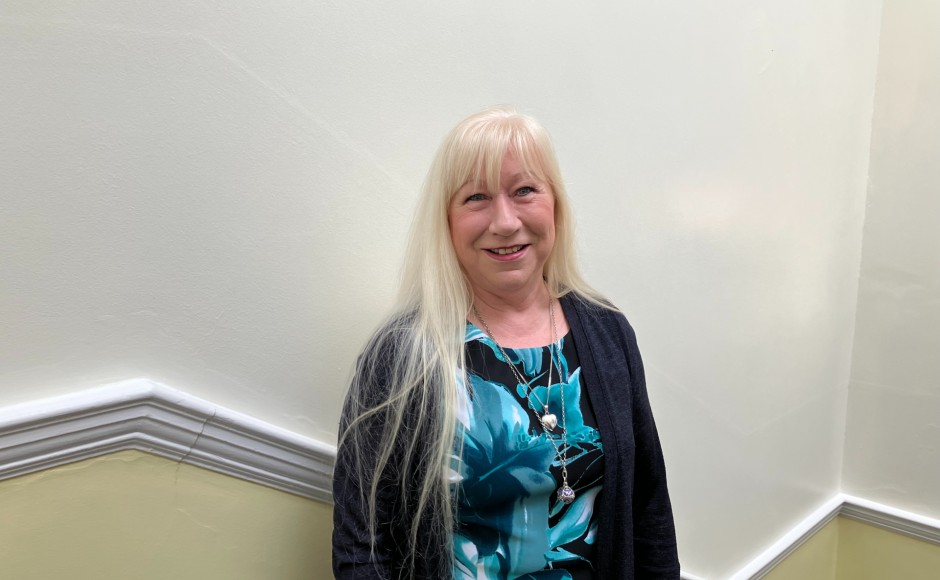
"There were no first names used in those days, she added.
"Almost everyone was on a second-name basis. It was only if you were under 20 that you got to use your first name," she said.
After working for the General Treasures, Ms Roddie was seconded to the Deeds Department where she worked with punch cards.
She then worked for the Accounting Machine Section, using punch tape machines.
At the end of each month, the tapes were carted along to a computer bureau in nearby St Andrew's Square.
"Later we got our first minicomputer, which was the size of a big washing machine," she said.
Ms Roddie, who holds the position of IT Project Manager, has been working at 121 longer than modern computers have been used there.
She oversaw their implementation into the Central Services Committee (CSC) and worked to introduce them to each of the presbyteries.
The first computers introduced to 121 were called Honeywell-Bulls.
There were around 20 of them, requiring 48 discs to install Microsoft Office.
They arrived in 1987 and Ms Roddie revealed that Law Department staff proved to be the most difficult to persuade to give up their typewriters and make the switch.
"They kept stashing them away!" she said.
Ms Roddie also oversaw the technical side of the switch to remote working during the pandemic, but she said getting people used to the Kirk's first computers was even more of a challenge.
"Going from computers was harder because people were frightened of them as well," she said.
"During the pandemic you didn't have time to think about it with remote working.
"In a normal environment it would have been introduced slowly and with training sessions."
Reflecting on why she has worked for the Kirk for so long, she said that she gets the feeling that "this one fits" and describes it as a workplace "with heart".
She emphasised that it was the people she worked with first and foremost that have kept her in the job so long – many of whom she's kept in contact with throughout the past 50 years.
"There had always been a lot of socialising with a lot of trips," she said.
"Everyone just seemed to want to join in."
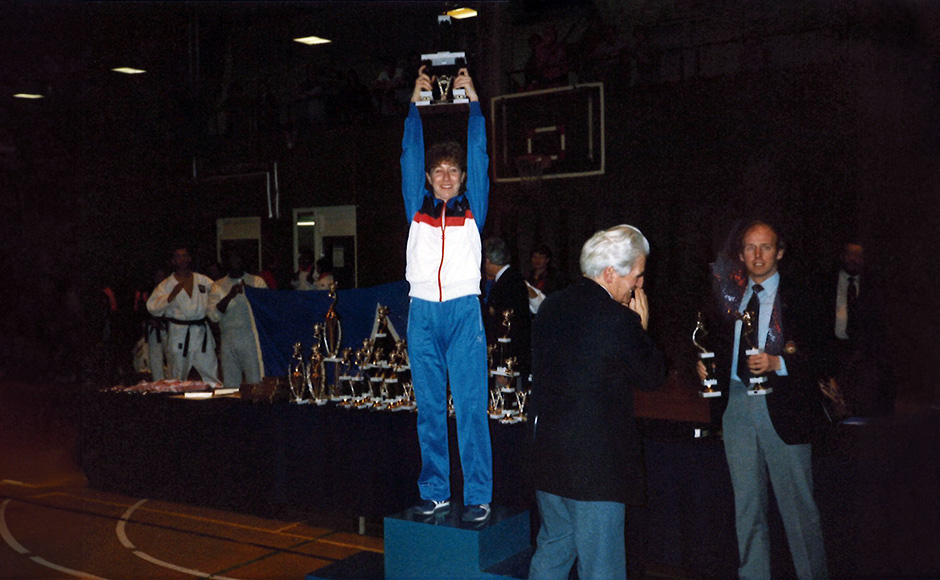
At the age of 20, Veronica suggested to two friends from the computer department at 121 that they could take up karate. They headed along together, and although the two others stopped training after a few months, Veronica stuck with it eventually attaining 4th dan black belt.
That was in 1978 and through Veronica's karate career she won gold at the Commonwealth Games, three European silver medals and one bronze, six British golds and two silvers, nine Scottish golds and one silver, one English Open Gold and two silver. In total, she won 23 gold, 13 silver, and six bronze medals.
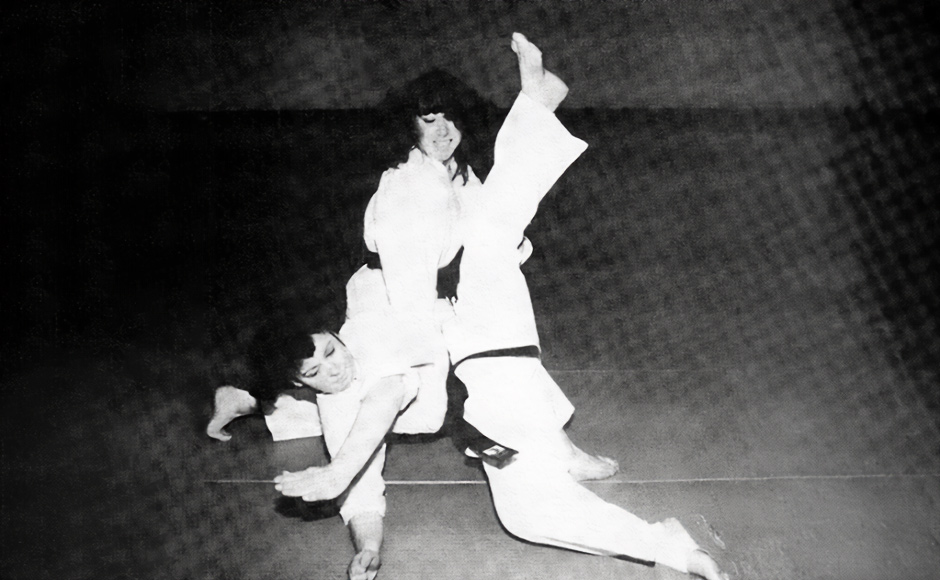
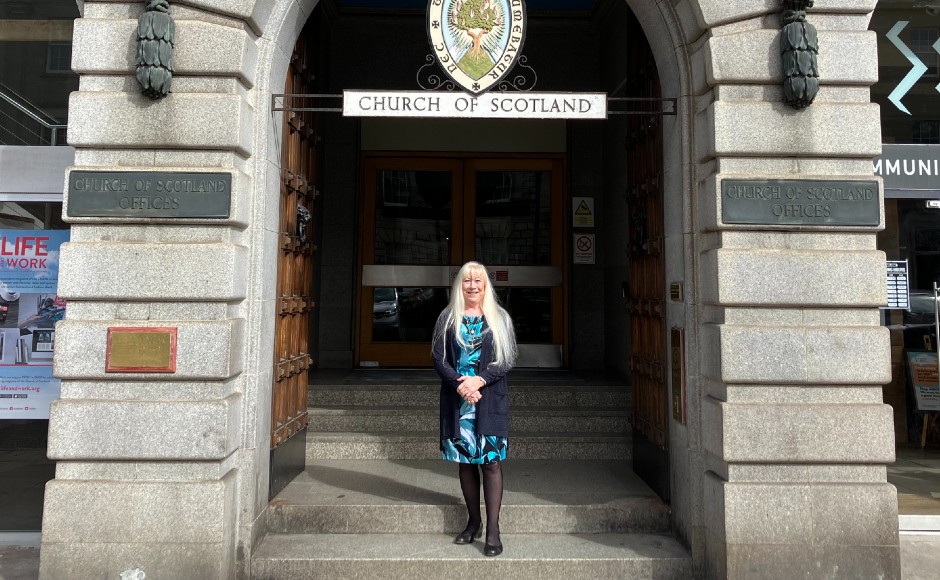
As well the people, Veronica credits the work done by the Kirk as a motivation.
"A lot of people don't realise how much good the Church does in society," she said.
"When I celebrated 40 years here, they asked if I'd stay another ten.
"I told them they can't get rid of me!"
Moderator of the General Assembly of the Church of Scotland Shaw Paterson said:
"It was wonderful to hear Veronica describe her loyalty working for the Kirk to it being a workplace ‘with heart'.
"Veronica has served the church for 50 years and so is also responsible for it being a place ‘with heart'. I cannot begin to imagine the hurdles she will have faced overseeing the introduction and development of what we now call IT.
"I would like to thank Veronica for her service, while reassuring her of the positive impact she has made both within the national offices and in presbyteries and parishes across the country.
"Veronica, thank you for your dedication and continuing commitment to serving the Church."
